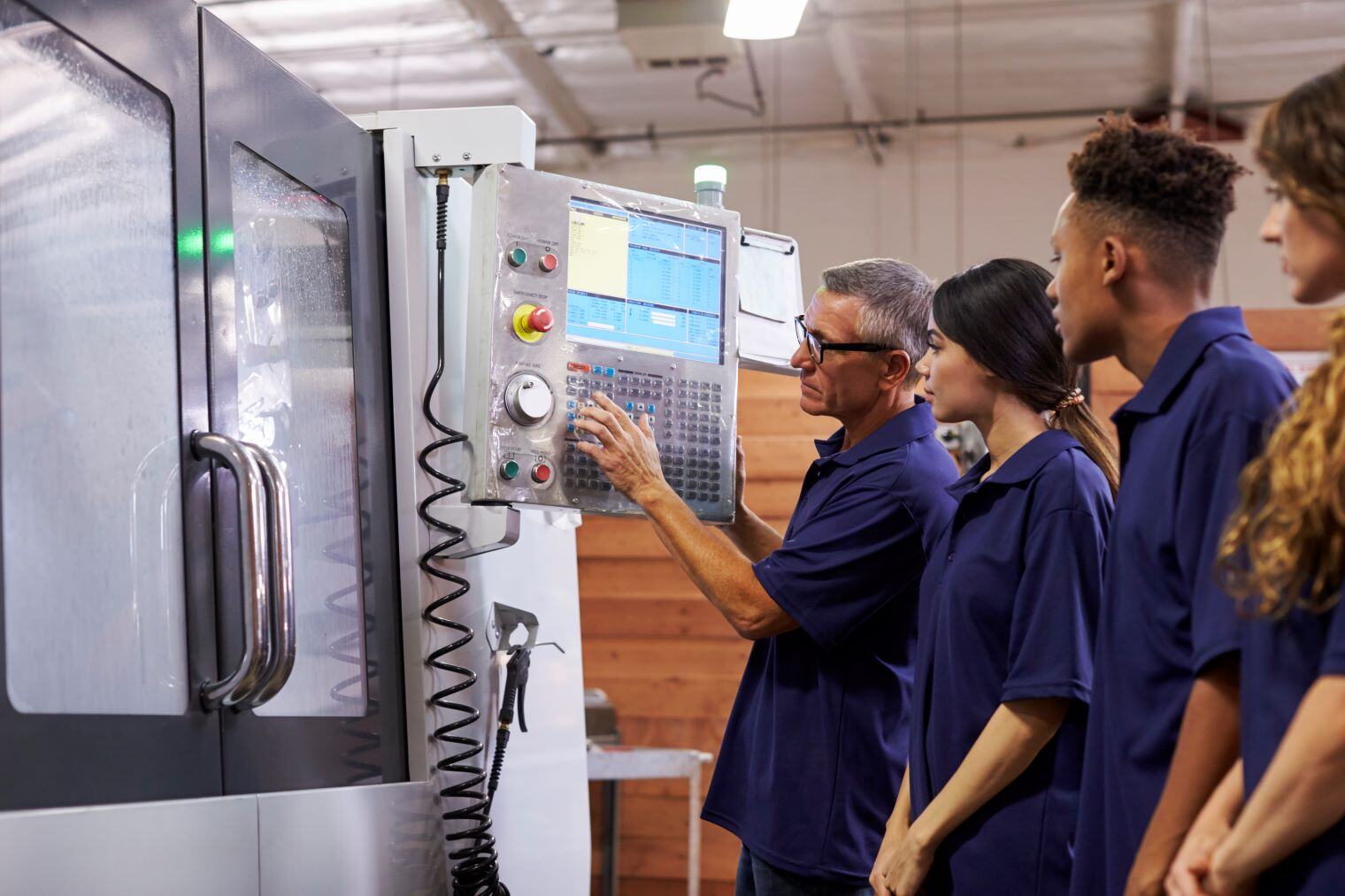Material Handler: Everything You Need to Know Before You Get Started

Post Categories
Timpl Marketing
If you're considering a job as a Material Handler, you might be wondering: What does the job involve? Is there room for growth? How much can I make?
Here’s everything you need to know before getting started.
What you'll learn:
- What does a Material Handler do?
- Is it a good career choice?
- How much does a Material Handler make?
- Top paying industries for Material Handler
- Career opportunities
- How to become a Material Handler?
- How to become a great Material Handler?
- How to find a job as a Material Handler?
What Does a Material Handler Do?
A Material Handler is responsible for moving, storing, and organizing goods in warehouses, factories, and distribution centers. Unlike general warehouse workers, Material Handlers often operate pallet jacks, forklifts, or conveyor systems to transport products.
Typical Responsibilities:
- Loading and unloading shipments
- Organizing inventory and materials
- Operating equipment like forklifts or hand trucks
- Preparing materials for production or shipment
- Keeping records of materials moved or stored
- Following safety guidelines to prevent injuries
While some roles focus on manual lifting, others require operating machinery, making it a great fit for those who enjoy hands-on work with some technical skills.
Job Growth & Stability: Is This a Good Career Choice?
Right now, millions of material handlers and workers in similar occupations are employed across the U.S., and the industry continues to grow. Over the next decade, about 409,000 job openings per year are expected—whether from industry growth or workers moving into new roles.
With warehouses and logistics centers operating year-round, this job offers reliable schedules, consistent work, and opportunities to grow into higher-paying positions.
How Much Does a Material Handler Make?
On average, Material Handlers in the U.S. make about $37,660 per year. But like any job, your pay depends on where you work, your experience, and the industry you're in.
- If you’re just starting out, you might earn around $29,480 or less per year.
- With some experience and skills, you’ll likely land somewhere near the $37,660 average.
- The top 10% of Material Handlers—especially those with forklift certifications or working in high-demand industries—make $50,280 or more a year.
(Source: US Bureau of Labor Statistics)
And don’t forget about overtime, bonuses, and shift differentials. Many warehouses pay extra for night shifts, weekend work, or meeting performance goals, which can boost your paycheck even more.
So, while it’s a solid starting point, the real opportunity comes when you level up your skills and go after higher-paying roles.
Which Industries Pay the Most?
While Material Handlers are needed in almost every industry, some sectors offer significantly higher wages due to specialized materials, safety requirements, or technical skills.
Here are some of the top-paying industries for Material Handlers and their average annual wages:
- Electric Power Generation, Transmission, and Distribution – $53,820
- Aerospace Product and Parts Manufacturing – $49,550
- Support Activities for Water Transportation – $47,830
- Natural Gas Distribution – $47,590
- Scheduled Air Transportation – $47,050
If you’re looking for higher pay, these industries are worth considering. However, they may require additional training, certifications, or experience to qualify for positions.
Career Opportunities: Where Can You Go From Here?
One of the best things about being a Material Handler is the potential to grow into higher-paying roles.
- Forklift Operator – With certification, you can earn more and operate specialized equipment.
- Inventory Control Specialist – Transition into tracking and managing warehouse inventory.
- Logistics Coordinator – Move into planning and organizing shipments.
- Warehouse Supervisor – Oversee teams and operations as you gain experience.
- Supply Chain Management – Climb the corporate ladder into logistics planning roles.
The key is to gain experience, build technical skills, and take on new responsibilities to move up the career ladder.
How to Become a Material Handler
The best part? You don’t need a college degree to get started.
Basic Requirements:
- High school diploma or GED (not always required, but preferred)
- Ability to lift heavy materials (usually 30-50 lbs)
- Willingness to learn warehouse safety procedures
- Comfortable working on your feet for long hours
Helpful Skills:
- Forklift or pallet jack operation (some companies provide training)
- Basic math for inventory tracking
- Teamwork and communication for coordinating with coworkers
- Attention to detail for handling fragile or high-value materials
Some companies will train you on the job, while others may require forklift certification before hiring.
How to Be a Great Material Handler
What makes a great Material Handler? We spoke with a leader who has worked with countless Material Handlers over the years, and they shared the key traits that separate the best from the rest.
- Be curious and ask questions. The more you understand the materials you handle—how they’re used, where they go, and what they’re called—the better you’ll be at anticipating needs and preventing mistakes.
- Know the lingo. Some materials have multiple names, and terminology can vary by location or industry. Learning all the common terms helps you stay efficient and avoid confusion.
- Stay organized. A clean, well-sorted workspace saves time, reduces errors, and makes you more productive.
- Take notes. Keeping track of special requests, material details, or frequently used items helps you stay on top of your tasks. If there’s ever a mix-up, having a record of what was requested can be a lifesaver.
- Be proactive. Anticipate what your team might need next. If you can prepare materials ahead of time, you’ll make everyone’s job easier—and you’ll stand out for your initiative.
- Listen and learn. Pay close attention to experienced coworkers. They often have tricks and best practices that can make your job smoother.
- Communicate effectively. If there’s ever a misunderstanding about materials or an order, refer to your notes and clarify professionally. Good communication builds trust with your team.
- Stay flexible and open to feedback. The best Material Handlers keep improving by listening to constructive feedback and adjusting their approach.
Employers notice hard workers who show initiative, so take every chance to improve your skills and take on new challenges. Find more tips for enjoying warehouse work here: 4 Tips to enjoy Warehousework
How to find a job as a Material Handler?
These tips may not be tailored to Material Hanlder or a specific job, but they still offer valuable guidance on landing the job you’re looking for.
- How to find a job in Cartersville, GA
- How to find a job in Manteca, CA
- How to find a job in LaGrange, GA
Next, let’s explore what interview questions are recommended, How to follow a job after interview, How to negotiate after a job offer to help you succed.
Final Thoughts
Becoming a Material Handler is a great way to enter the world of logistics, warehousing, and supply chain management. It’s a stable, hands-on job with room for growth, skill development, and higher pay—especially if you’re willing to learn and take on new responsibilities.
If you’re ready to jump in, explore your opportunities with Timpl and start building a career that keeps the world moving!


